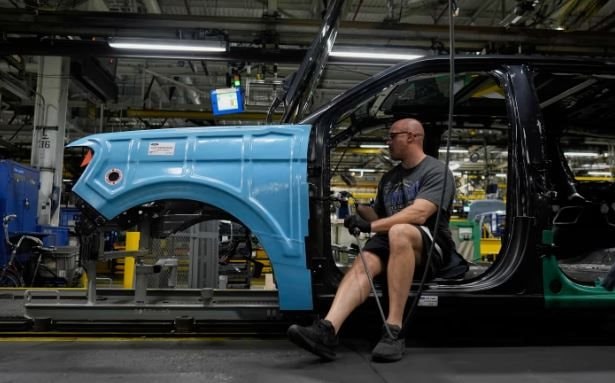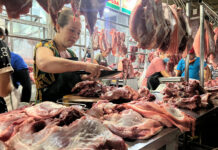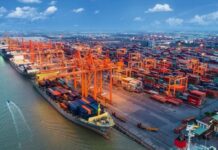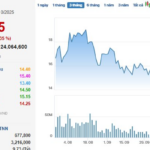
The automotive industry faced significant challenges in 2025, marked by a series of supply chain disruptions.
2025 has been a tumultuous year for the global automotive industry. After a prolonged recovery from the pandemic and semiconductor shortages, car manufacturers faced a cascade of setbacks—from rare earth mineral shortages and aluminum plant fires to production halts due to electronic component deficits. These successive blows exposed the fragility of an already strained supply chain.
Ford and Jeep, iconic American automakers, were among the hardest hit. Ford’s troubles began early in the year when it halted operations at several U.S. plants due to a shortage of rare earth magnets sourced from China, critical for electric vehicle motors and electronic modules. According to *Supply Chain Brain*, China’s tightened export controls on strategic minerals directly impacted Ford, BMW, and Tesla. This forced Ford to reevaluate its supply chain, seeking new mining partners and long-term reserves for materials once deemed “cheap enough to overlook.”
Before resolving the rare earth issue, another critical blow struck. In September 2025, a massive fire at Novelis’ Oswego, New York aluminum plant—a key supplier for Ford and Jeep—halted production. *Car and Driver* reported that Ford suspended production of its F-150 Lightning pickup and significantly reduced F-Series output, its flagship revenue generator. The company estimated losses nearing $1 billion.
Stellantis, Jeep’s parent company, also faced disruptions, halting production of the Jeep Wagoneer and Grand Wagoneer for three consecutive weeks. These premium SUVs, vital to Jeep’s profitability, remained idle due to aluminum shortages for vehicle frames.
These incidents were not isolated. The global automotive sector faced a multi-layered supply chain crisis in 2025. From Asia to North America, shortages of rare earth minerals and lightweight metals highlighted a dangerous dependence on a handful of supplier nations.

China’s dominance in rare earth refining and high-performance magnet production exacerbated global supply chain vulnerabilities.
China controls over 70% of rare earth refining and dominates high-performance magnet production, essential for electric vehicles. When China restricted exports, assembly plants in the U.S., Germany, and Japan faced severe disruptions. Mercedes-Benz is even considering domestic mineral stockpiling, an unprecedented move in its history.
Simultaneously, the aluminum supply chain emerged as a new bottleneck. Aluminum, vital for lightweight electric vehicles and trucks, saw its supply disrupted by the Novelis fire, triggering a domino effect across automakers reliant on shared suppliers. Soaring import costs and a 50% tariff on non-trade-zone aluminum left companies like Ford with limited quick-fix options.
The automotive sector also grappled with persistent electronic component and semiconductor shortages, despite the global chip crisis supposedly easing. Chipmakers like Nexperia faced new geopolitical hurdles, including Dutch government restrictions and Chinese export limits on related technologies. This left automakers—already pivoting to electric and connected vehicles—in a precarious position, where a single disruption could halt entire production lines.
For Ford, this era tested the resilience of a 120-year-old corporation. The company shifted from cost optimization to supply chain resilience, accepting higher inventory levels and increased costs to maintain stable production. While this may reduce short-term profits, “supply chain safety” now rivals “technological innovation” in importance. Stellantis learned from Jeep’s struggles that relying on a single aluminum or chip supplier risks systemic failure.

The automotive supply chain is undergoing a global restructuring, prioritizing resilience over efficiency.
Experts from *The Wall Street Journal* predict a global restructuring of automotive supply chains. The “just-in-time” model is giving way to “just-in-case,” emphasizing preparedness. Automakers are diversifying suppliers, investing in buffer inventories, and relocating production to safer regions. While costly, this ensures autonomy—critical in a world of conflicts, natural disasters, and resource shocks.
Analysts forecast rising vehicle prices in 2026 due to higher input costs and supply chain insurance. Consumers will feel the impact as flagship models like the Ford F-150 and Jeep Grand Wagoneer face shortages and delayed deliveries.
Long-term, the 2025 supply chain crisis will force automakers to rethink production structures. No longer reliant on single factories or nations for strategic materials, the industry must build flexible, transparent, and sustainable supply chains—even at higher costs—to avoid future crises.
Source: WSJ, Car and Driver
FIATA World Congress 2025: Strengthening Supply Chain Resilience in the Face of Global Uncertainty
At Session 4 of the FIATA World Congress 2025, delegates shared innovative solutions to enhance the adaptability and resilience of supply chains in the face of global disruptions.
Police Raid Bean Sprout Factory, Uncover 1.4 Tons of Sprouts “Bathing” in Growth-Accelerating “Candy Water”
The Economic Police Department of the Ninh Binh Provincial Police Investigation Agency has issued a decision to prosecute a case and press charges against Tran Thi Hanh, born in 1985, residing in Ninh Cuong commune, Ninh Binh province, for “Violating food safety regulations.”








































